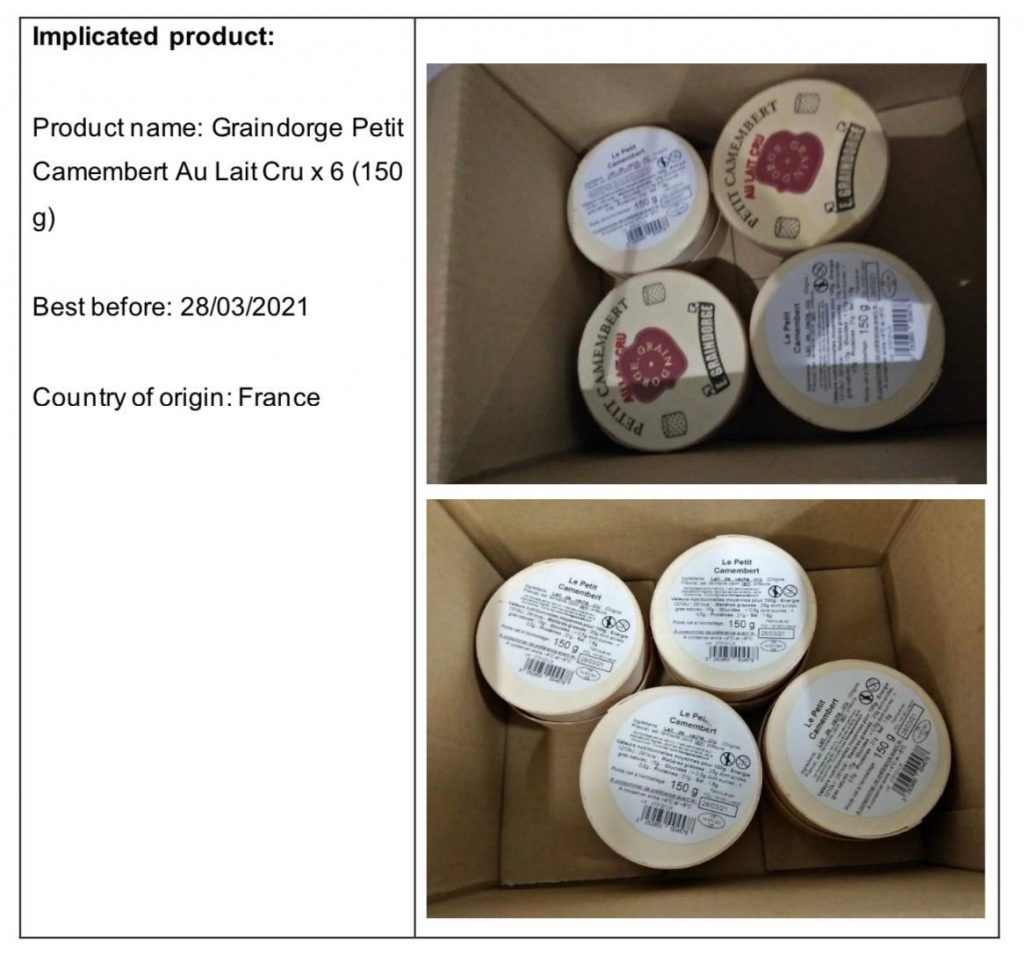Cheese; some people hate it, others love it so much they’d eat it if it was spread over a used shoe.
Much like pineapples on pizza and stinky tofu, cheese is divisive.
Talk to cheese lovers and they’ll tell you that it’s the universe’s gift to mankind. Ask cheese haters and they’ll tell you that it’s the perfect thing to eat when you’re in the mood to throw up.
But there’s one thing I’m sure both sides can agree on: tainted cheese is fun for no one.
SFA Recalls Raw Milk Cheese Due to the Presence of E.coli
Graindorge Petit Camembert Au Lait Cru, a raw milk cheese from France, will be taken off the shelves after a recall was issued, the Singapore Food Agency (SFA) said on Wednesday (31 March).
A European Commission food safety authority issued a notification for the recall of the cheese due to the presence of Shiga toxin-producing Escherichia coli (STEC), or E coli.
The affected product is Graindorge Petit Camembert Au Lait Cru in 150g boxes, which expire on 28 March.

The cheese was brought into Singapore by Indoguna, a food and beverage company located in Senoko.

“The importer has confirmed that the product has been recalled and is no longer available for sale,” SFA said.
Can Cause Serious Infections
As the SFA noted, food contaminated with STEC may not look or smell spoilt, but it can cause serious infections.
STEC infection can occur by consuming contaminated food, particularly raw or
unpasteurised milk, the agency said.
Raw or unpasteurised milk and milk products are likely to contain more bacteria and other pathogens compared to pasteurised products, SFA said.
If you happen to get infected, you’ll have to deal with symptoms of STEC infection, which include diarrhoea, stomach cramps, and vomiting.
In a post on Facebook, the agency encouraged consumers who feel unwell after consuming the affected product to seek medical attention.
It added that consumers who choose to consume raw milk cheese must be aware of the risks involved.
“As a precaution, vulnerable groups of people, especially young children, pregnant women, elderly persons, or people with chronic illness such as diabetes, should avoid eating raw food”, SFA said.
Safety Practices to Prevent Foodborne Illnesses
The agency also listed several safety practices to prevent contracting foodborne illnesses.
This includes:
- Thoroughly cooking raw food from animal sources
- Keeping raw food separate from vegetables, fruits, cooked, and ready-to-eat food
- Avoiding raw (unpasteurised) milk or foods made from raw milk
- Washing hands, utensils, or food preparation surfaces before and after handling
raw food
Featured Image: Facebook (SFA)




